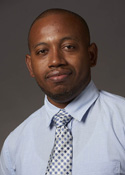 Rony F. Arauz, MPH
Rony F. Arauz, MPH
PhD Candidate
 Rony F. Arauz, MPH
Rony F. Arauz, MPHPhD Candidate
What was your educational and relevant work experience prior to enrolling in the OEE program?
I was at the University of Michigan-Ann Arbor pursuing my M.P.H. degree in Environmental Health Sciences with a concentration in Occupational and Environmental Epidemiology. While at Michigan, I participated in research and became part of the Air Pollution and Birth Outcomes in Mexico City study, a collaborative international project between the University of Michigan and research collaborators in Mexico. Prior to my M.P.H, I obtained my B.A. in Biological Sciences from the City University of New York-Lehman College. After graduating college, I worked for two years at the National Human Genome Research Institute of the National Institutes of Health in Bethesda, MD and for nearly two years at the Kennedy Krieger Institute in Baltimore, MD. During this time, I became interested in projects concerning public health, research in areas concerning gene discovery and environmental factors. These research opportunities combined with my life experiences became the driving force that compelled me to pursue studies in public health.
What made you interested in the field of occupational and environmental epidemiology?
I am most interested in investigating cause-effect relationships that result from occupational and environmental exposures. I believe that environmental health sciences research, coupled with applied molecular epidemiological and biostatistical skills, will provide a broader perspective for decision-making in the discovery of new occupational and environmental determinants of health.
What made you choose the University of Minnesota?
I chose the University of Minnesota because of the rigorous education in environmental health sciences and it was absolutely more suitable to my background. For example, the nature of the OEE training program is comprehensive and well integrated, which evidenced by the curriculum and faculty members. Additionally, The University of Minnesota ranks as one of the top 10 schools of public health in the nation and its faculty members and academic quality are highly regarded at the national and international level.
What type of job would you like to find upon completion of the program?
Ideally, I would like to pursue a career in academia upon completing the program. An academic career would allow me to continue a lifelong satisfaction in occupational and environmental epidemiology research and teaching, while making contributions to the field of public health.
What would you say to a student considering the program?
I highly recommend the OEE training program to any student because it is comprehensive and well integrated. Also, the OEE training program integrates well with other training programs within the division of environmental health sciences and to me that is incredibly important.
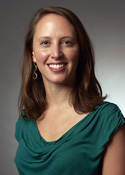 Gabriela Bustamante Callejas
Gabriela Bustamante CallejasPhD Candidate
What was your educational and relevant work experience prior to enrolling in the OEE program?
What made you interested in the field of occupational and environmental epidemiology?
I have always been interested in the link between human health and the environment, both physical and social. As a field, public health provides the necessary flexibility to pursue an approach to inquiry that attempts to bridge the natural and social sciences.
What made you choose the University of Minnesota?
The School of Public Health is among the ten best schools around the country. In addition, when interviewing for the PhD, I felt that I was heard and evaluated holistically. In hindsight, it was a great decision as I have been academically challenged while also receiving incredible guidance and support.
What type of job would you like to find upon completion of the program?
I would like to find a faculty position at a university.
What would you say to a student considering the program?
I would highly recommend the program. Not only is the program academically rigorous, but it is also very humane where every student is valued and supported.
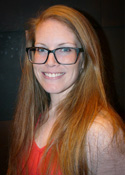 Ashley M. Hernandez
Ashley M. HernandezPhD Candidate
What was your educational and relevant work experience prior to enrolling in the OEE program?
Before beginning my studies in public health, I taught biological sciences for 5 years to high school and middle school students. Although I enjoyed teaching, I had always had an interest in epidemiology and public health, and I had an opportunity to pursue my interests at the UT School of Public Health’s San Antonio Regional Campus in San Antonio, TX. Once there, I began working on my thesis which involved ambient air pollution and diabetes prevalence, and I became increasingly interested in not only environmental exposures, but occupational exposures as well.
What made you interested in the field of occupational and environmental epidemiology?
When I was younger, my grandfather developed mesothelioma due to asbestos exposure he encountered as a plumber and pipefitter. Due to my personal experience and the ubiquity of air pollutants, I’m particularly interested in the relationship between inhalation exposures (both environmental and occupational) and lung disease.
What made you choose the University of Minnesota?
After speaking to the professors and other students in the program, it was evident that the program would not only provide an unparalleled learning opportunity, but it would also provide a supportive and encouraging environment for me to develop as a scientist. Everyone involved in the program, including the professors, students, and staff help to create an environment that fosters open inquiry and collaboration to assist students in their academic development.
What type of job would you like to find upon completion of the program?
Whether academia, government, or industry, I would like to work in an area that would enable me to continue to pursue my interests in inhalation exposures and lung disease.
What would you say to a student considering the program?
Students will have opportunities to pursue their own interests, attend and present at both international and national conferences, and learn to communicate their findings to a broad audience. The program ensures that students are well-prepared and trained to be competitive in their selected field of interest.
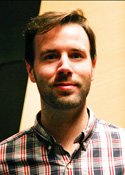 Evan Sorley
Evan SorleyPhD Candidate
What was your educational and relevant work experience prior to enrolling in the OEE program?
Prior to enrolling in this program, I earned my Masters of Science in Epidemiology at the University of Illinois at Chicago, with my thesis investigating the potential role that free-roaming dogs have on the human health of residents of the Northern Cheyenne Indian Reservation in Montana. I also previously worked in the epidemiology department at the Lincoln Park Zoo in Chicago, with work focusing on zoonotic disease surveillance.
What made you interested in the field of occupational and environmental epidemiology?
My previous experience has led to an interest in epidemiologic research methods and the human health effects of working in environments with high risks of being exposed to infectious pathogens, including working with animals.
What made you choose the University of Minnesota?
The University’s School of Public Health has an excellent reputation, and there are numerous faculty members whose research interest includes infectious diseases in both community and occupational settings. Additionally, I liked that there is a lot of collaboration between the Environmental Health Sciences department and the College of Veterinary Medicine and the Minnesota Department of Health. I also chose the University of Minnesota because the state itself also is known its quality of life.
What type of job would you like to find upon completion of the program?
I would like to work as an epidemiologist in a public health department or industry, with an emphasis on quantitative infectious disease research.
What would you say to a student considering the program?
The OEE program has been an excellent opportunity to explore and be trained in various avenues of epidemiologic research through courses, mentors, and working with collaborators both within and outside of the department.
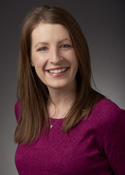 Shannon Sullivan
Shannon SullivanPhD Candidate
What was your educational and relevant work experience prior to enrolling in the OEE program?
I received my Bachelors of Science in Chemistry and Masters in Science in Organic Chemistry from Georgia State University. After graduation I worked as a research chemist in the Division of Laboratory Sciences at the Centers for Disease Control and Prevention working on research and development of analytical methods used for analysis of NHANES and emergency response samples.
What made you interested in the field of occupational and environmental epidemiology?
While I was on deployment as the laboratory personnel for an emergency response, I was able to work side-by-side with epidemiologist and doctors who were communicating with participants about their possible risk of exposure. It opened my eyes to Public Health and how I could go beyond the laboratory and interact on a community-level solving health issues.
What made you choose the University of Minnesota?
I chose the School of Public Health at the University of Minnesota for two reasons, one being the receptiveness of the professors to my multiple emails and phone calls on how well I would fit in their program. The other was that I found the school had a lot to offer in terms of programs, training opportunities, and faculty mentors.
What type of job would you like to find upon completion of the program?
Upon completion of the program, I want to continue working in a research environment and find a job that utilizes my training learned in this program as an occupational and environmental epidemiologist.
What would you say to a student considering the program?
The Occupational and Environmental Epidemiology program is a great program with a mixture of in-depth environmental, epidemiology and biostatistics courses, and how they can be applied in occupational settings. The program provides you with a platform to explore your own individual research interests, and it also provides you with many opportunities in collaboration across fields of study and faculty mentorship.